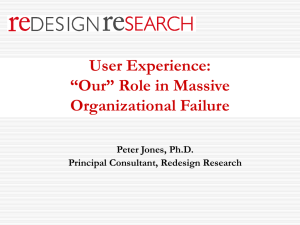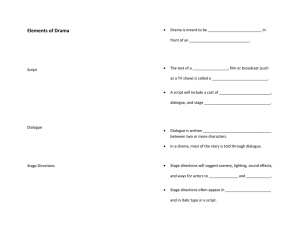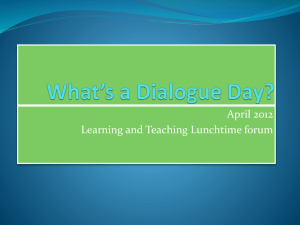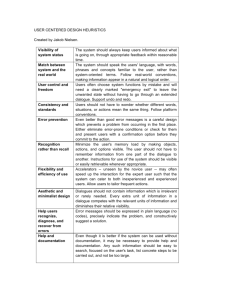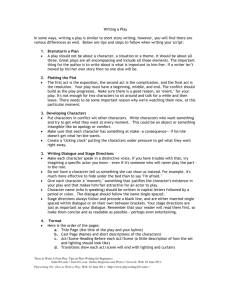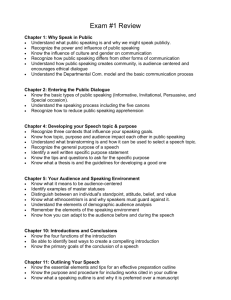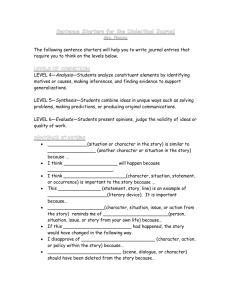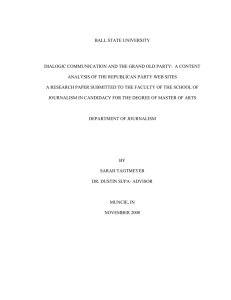Community Dialogue: OSU-Cascades Creating Non-polarized Scenes for Engaging Contested Topics Natalie Dollar, PhD
advertisement
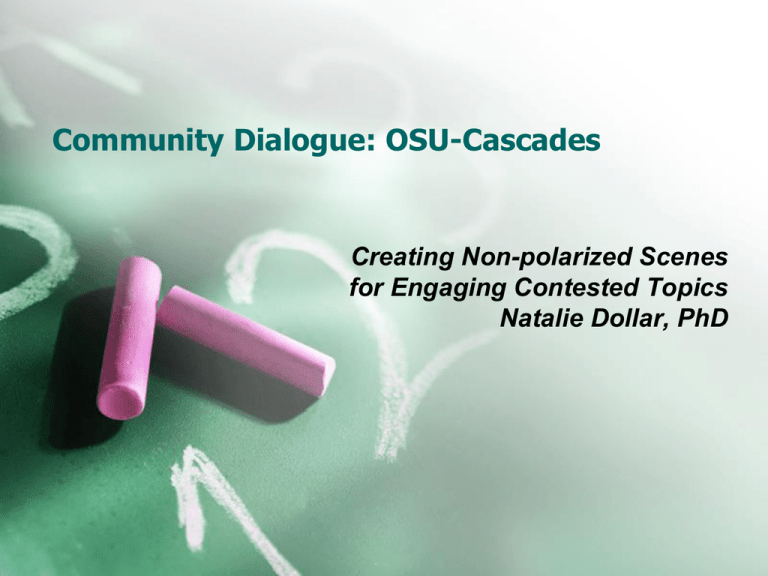
Community Dialogue: OSU-Cascades Creating Non-polarized Scenes for Engaging Contested Topics Natalie Dollar, PhD Expressing self in public, a deeply felt USAmerican belief • “that one can and should speak, one can and should speak about self, its history, experiences, and opinions; and that one should not let others inhibit the willingness to speak in public” (Carbaugh, 2005, p. 22) • “a civil routine where information is produced, and differences among people are both a warrant and theme of its productions” (p. 45) Dissenting views • USAmericans hold them and should express them • Widely accessible communication forms Discussion Debate Deliberation Argument Public meetings Cultural Communication Crisis, Revisiting the context, April 2003 • “I haven’t felt this way since well I’m not sure I’ve ever felt this way. This is America and I am scared to voice my opinion.” (community member, March 2003) • “I certainly don’t want to bring up Iraq unless I’m talking to my most trusted friends and they tend to think like me. How in the world am I going to understand their perspective if everyone is terrified to talk about it, especially in public and at work?” (community member March 2003) Communication obligation • To create a communication scene where members of our community could come together and respectfully communicate with others, who likely held differing opinions and beliefs, during this time of crisis. • Manage “dueling identities” communication forms War & Peace: A Series of Dialogues, Spring 2003 • Community Dialogue Workshop OSU-Cascades and Central Oregon partnership 4 workshops, 5th offered February – March 2008 • Community Dialogue Project (research and outreach) Series of studies Campus dialogue workshops Participant application “Getting below the Sound Bite” by Engaging the Betwixt and Between Study 1 Community Dialogue Workshop 1 USAmerican public “expressive order” 1. Lack of depth in content 2. Absence of incurring future interactional obligations 3. Absence of attention to consequences of communication for both local and global communities 4. Absence of silence as a powerful resource for understanding other, identifying mutuality, and building trusting relationships Research Questions: 1. Can we transform an educational and public scene supporting polarized, expert-driven communication, to a scene prioritizing “nonpolarized discourse of substance”? 2. What communication practices facilitate this transformation? 3. What communication practices inhibit this transformation? Methods 1. Phase 1 – across 4 workshops • Audio recordings of CDW • Review recordings weekly 2. Phase 2 – specific workshop • Review of audio-tapes, participant evaluations, focus group, research journal • Transcription of each 2-hour workshops • Cultural pragmatics and cultural themes analysis Communication profile Communication strategies/practices Focus on participants’ communication Findings: 1. River metaphor - our emergent “optimal communication form” Exemplar workshop Ebbs and flows Both necessary Findings continued: 2. Engaging the dialogic moment – engaging the complexity Recognizing dialogic moments • Dialogic listening • Building trust • Getting to know participants’ communication styles Negotiating the narrow ridge • • • • Personal and communal Emotion and rationality Linear and non-linear Process and product Tension of holding one’s own while engaging other Findings continued: 3. Inhibiting dialogic moment Prism of dialectical tensions • USAmerican cultural values & dialogic sensibilities Preference for talk Communicative agency • Requires the presence of appropriate rules, resources, and motives • If we intentionally create places where persons who disagree and misunderstand one another are encouraged to interact, dialogic moments are likely to occur. Suggestions: • Make sure dialogue is the appropriate communication form and provide dialogue scene • Start with a set of rules for your dialogue • Clarify dialogue’s relationship to other communication forms such as decision-making • Teach listening as essential skill • Recognize and embrace the situatedness of each interaction and relationship • Not all participants will engage in dialogue at the same time
